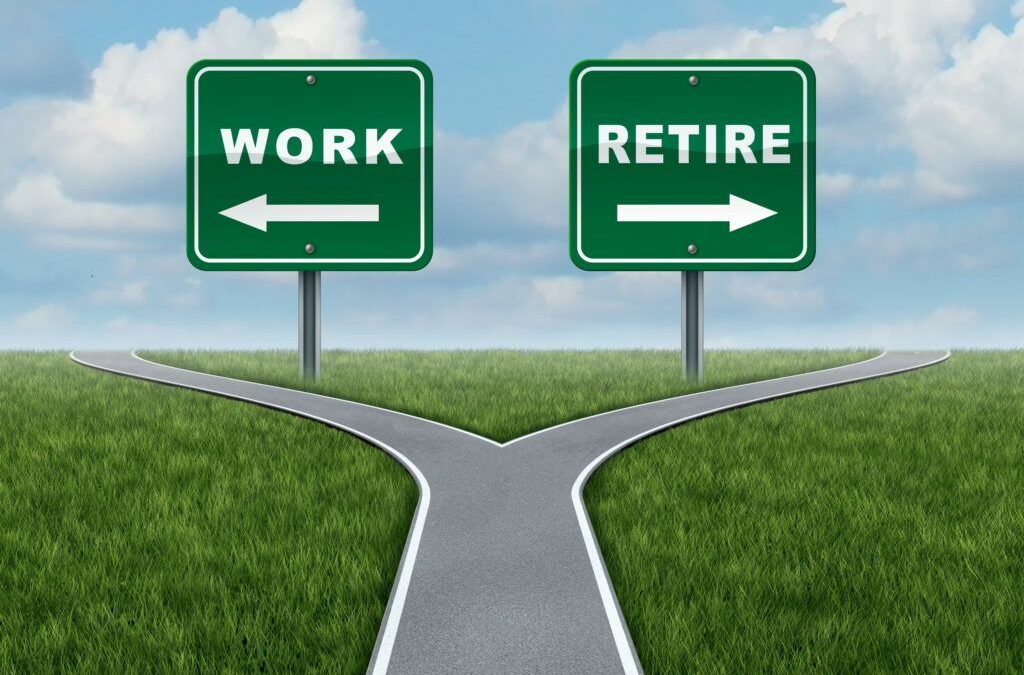
Retirement is something most people look forward to in the United States. This is because it offers them the opportunity to travel, spend time with their families and essentially relax. All that is possible because most people are going to qualify for Social Security benefits. However, some individuals, especially those who used to run their own business, may find retirement to be a little too dull for their liking. As a result, many will often go looking for part-time work to either have something to do or supplement their monthly income. But how much does this affect your Social Security benefits? Read on to learn about this very important topic.
How Your Social Security May Change
As stated above, beginning to work full or even part-time can drastically affect your Social Security benefits. Although there are various factors that the government will take into consideration before making any changes, it is still good to know the potential changes that may benefit you. Below are a few of those potential changes:
- Your benefits will vary depending on your age
- Your Social Security benefits may be reduced depending on your new income.
- The types of benefits may be eliminated or altered to account for your new income.
Understanding Full Retirement Age
One of the most common terms you will hear when considering opting in for Social Security is “Full Retirement Age.” This is because although you can certainly accept Social Security at 62, your benefits may be reduced depending on your birth year. What this means is that depending on the year you were born and the laws during that time, your “full retirement age” will matter greatly in terms of how much you get. For example, someone born in 1937 or earlier will reach full retirement age of 65 rather than today’s 62. Why does this matter so much? It matters because if you are legally at full retirement age, you can work and earn as much as you want without being penalized by the government.
Working Before Full Retirement Age
If, unfortunately, your birth year law states that you are not considered to be at “full retirement age” just yet, you will have to be careful about how much you earn each month. According to the Social Security department, individuals who are not at full retirement age and are currently working full or part-time can only make $1,580 per month or $18,960 per year. If you go beyond that limit, your benefits will decrease by one dollar for every two dollars earned over the limit. That is why it is highly recommended to keep a detailed record of how much you are earning through regular wages and yearly bonuses, as they will also be considered part of your income.
Social Security Earnings Limit for 2021
Earlier, we spoke about the fact that those who are at full retirement age can earn as much as they want without fearing a reduction in their benefits. However, things are going to be very different if you are reaching full retirement age within the year 2021. This is because now there will be an earnings limit imposed amongst many other changes. The new earnings limit for individuals who will be reaching full retirement age and receiving Social Security will be $4,210 per month or $50,520 a year. After every one dollar that is earned, three dollars will be reduced from your monthly Social Security check.
As you can see from the information above, several factors must be taken into consideration when deciding to return to the workforce. Although each person’s circumstance & experience will dictate how much or how little of their benefits are changed, much of the rules imposed by the Social Security department are universal.
Does your plan meet all your retirement needs? Schedule an appointment now with one of our advisors for a complimentary review of your retirement plan.

Retiring is the goal of every worker who dreams of leisurely breakfasts and time in the garden. However, getting to retirement takes some financial effort and strategic planning. The reality of having no job means that you’re on your own when it comes to every facet of your financial life. Before you send in that letter of resignation, get familiar with the top questions that you need to ask yourself before retiring. You’ll have less stress as a result of these well-answered questions.
What’s Your Plan For Healthcare?
When you’re working, your employer’s coverage keeps you healthy with reasonably affordable policies. All of that changes when you retire, however. Ask yourself if you have a plan for healthcare coverage. Ironically, the time of your life when you really need healthcare coincides with the lack of an employer’s policy.
Luckily, the federal government offers Medicare. From the moment that you turn 65 years of age, you can take advantage of this program. It covers the bulk of your medical needs, and there are supplemental programs for options that you care to invest in.
COBRA insurance coverage is possible between your employment period and signing up for Medicare, but it only lasts for up to 18 months. It can also be very expensive because the employer isn’t paying for part of the cost. Ideally, you’ll want to rely solely on Medicare while looking for supplemental programs to cover speciality items, such as vision.
What Will Your Income Include?
On average, Social Security will cover about 40 percent of your income in the golden years. You can start payouts as early as age 67, but many retirees choose age 70 because there’s a higher monthly payout as a result of waiting. Your retirement savings must cover the bulk of the remaining shortage.
Many financial experts teach the concept of the 4- percent rule. In essence, you can take 4 percent of your funds from a retiring account each year, and you should still have enough money to cover your remaining years. There are other calculations to consider, such as understanding how much money you’ll need each month in these relaxing years. Although some experts believe that you can live off of 70 or 80 percent of your previous earnings, it’s ideal to shoot for a comparable income as earned during your working days. With this tabulation, you have extra funds for hobbies and traveling.
Do You Have Plans For Your Time Off?
Planning for your golden years also means that you need to fill the time that is now open to you. Isolating yourself from your social network at work can be detrimental to your health. Make rough plans for your golden years because filling the time can be a rewarding prospect. Volunteer with charities, help out the family or get a part-time job. Working as a consultant with your previous employer might be an option that keeps you connected while still enjoying the spoils of retiring in your 60s.
It’s natural to try new things, but then you’re not too thrilled with them. Continue to explore as you grow older because you might find a hobby or talent that sparks creativity in your mind. Many retirees find themselves starting a business as they learn how to offer a product or service that counts in the neighborhood.
Stay updated with your retirement plan by logging into your funds regularly. By knowing how much you have and where it will be allocated gives you a clear view of your retirement pathway. Retire with confidence that your plans will stand the test of time as opportunities spread out ahead of you.
Does your plan meet all your retirement needs? Schedule an appointment now with one of our advisors for a complimentary review of your retirement plan.

The Internal Revenue Service recently reported changes to the 401k and IRA. The agency’s announcements to Congress issues new regulations. Each alteration will impact retirement accounts and 401(k) contribution limits in 2021. Here are a few things Americans need to know regarding their announcement.
Most will want to wait for more detailed information from the IRS before taking any action. It would be best to learn as much as you can about the forthcoming changes. They will likely affect any significant decisions.
What Savers Can Expect
Most 401(k), 403(b), 457 plans, and Thrift Savings Accounts will be within the same framing as before. The current rules would allow people age 50 and over to save money $19,500, or $26,000 out of a traditional IRA. Likely, regulations will not change for SIMPLE retirement accounts. They typically maintain $13,500 contribution limits. The IRS allows individual retirement account contribution limits to remain at $6,000. Additional catch-up contributions for older contributors will also stay at $1,000.
There are a few changes that the IRS has announced regarding IRA and 401k contributions for 2021:
Tax Deduction Phase-outs for Traditional IRA Contributions
Taxpayers will be able to deduct traditional IRA contributions. To qualify, recipients may not participate in employer-sponsored retirement accounts. They also may not make above earnings limits. This change subjects employees to reduced or eliminated deductions. It also includes spouses covered by the same plan as the primary recipient.
There are a few other changes to be aware of when it comes to IRA and 401k contributions. Currently, making both employer and self-directed contributions to both accounts are workable. However, they may no longer be tax-deductible. The IRS will look to cut some of the current restrictions on Roth IRA contributions.
2021 Phaseout Ranges
In 2021, single taxpayers must consider the phaseout range will increase by $1,000. Ranges for spouses who file jointly with coverage from employer-sponsored plans have changed. It is now $66,000 to $76,000 and is set at $105,000 to $125,000. Limits to Couples’ workplace plans that only cover spouses individually are necessary. The traditional IRA contribution will require a higher phaseout range. The changes to IRA and 401k regulations are not necessarily the same for every situation. If separate plans cover both spouses, the range is consistent with 2020, remaining at $0 to $10,000. Look at the IRS publications for the most current regulations. Info regarding other aspects specific to your overall financial situation.
Roth IRA Contributor Prerequisites
Some of the changes include income limits for Roth IRA contributions. Their income phaseout ranges for 2021 include the following.
Roth IRA phaseout ranges:
• Single and heads of households – $125,000 to $140,000 (an additional $1,000 from 2020)
• Married couples who file jointly – $198,000 to $208,000,
• Married couples filing separately – $0 to $10,000 (unchanged)
Saver’s Credit income limits:
• Low- and moderate-income couples file jointly – $66,000 (an additional $1,000 from 2020)
• Heads of the household – $49,500
• Single individuals / married filing separately – $32,500
Rules for IRA and 401k contributions, when first released, will underline many adjustments. It is up to you to stay updated. If you are curious about what is in store for you, it is always wise to be alert. Remember, tax changes happen every year. The IRS has to release any changes to the public before they become active.
Source: https://www.marketwatch.com/story/401-k-and-ira-changes-for-2021-where-and-how-can-you-contribute-next-year-11603748200








